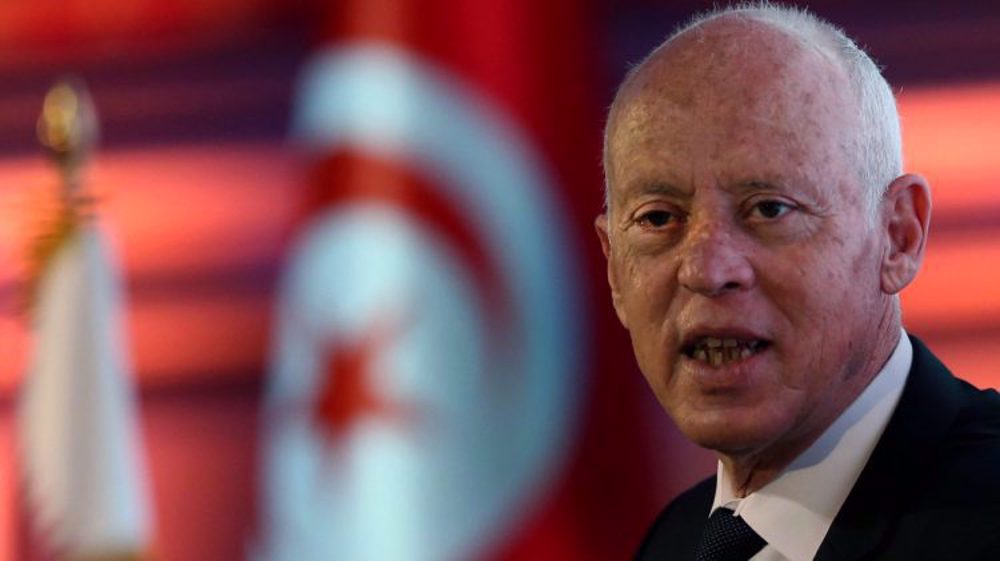
Rached Ghannouchi, leader of the Ennahda party and also Tunisia's parliament speaker, said in an interview with the Times newspaper on Saturday that the UAE was determined to "finish off" the Arab Spring, the widespread protests in 2011 that saw long-time rulers overthrown across the Middle East and North Africa.
The UAE “has taken upon itself the idea that the Arab Spring was born in Tunisia and must die in Tunisia," Ghannouchi said, alleging that the Persian Gulf country saw the brand of Islamic democracy propounded by Ennahda as a threat.
Tunisia, the cradle of the Arab Spring protests a decade ago, was thrust into a constitutional crisis last Sunday after Saied sacked Prime Minister Hichem Mechichi and suspended the country’s parliament for 30 days.
Saied said he would be running the country’s executive affairs in cooperation with a premier of his own choosing in the wake of violent protests across the nation over the government’s handling of the COVID-19 pandemic and the ailing economy.
Ennahda said at the time that the move was “a coup d’etat” against the 2011 revolution that ousted former Western-backed ruler Zine El Abidine Ben Ali, as well as against the country's constitution. The party called on all its supporters to protest against Saied's decision.
'Tunisia is not Egypt'
Speaking to the Times newspaper on Saturday, Ghannouchi drew an analogy between Saied’s move and the military-backed government of Egyptian President Abdel-Fattah el-Sisi, saying it was unlikely Tunisia would see something akin to the military coup that happened in Egypt in 2013, which was also backed by the UAE.
“Tunisia is not Egypt. There is a different relationship between the army and the government,” he said. “Here, since the revolution, the army has protected freedom and the ballot box.”
Ghannouchi also said that the UAE was already worried about the possibility of a peace deal in neighboring Libya, which could also potentially lead to democratic elections.
“They have a great fear that democratic transitions might spread to the rest of the Arab region,” he stressed.
In a statement on Friday, the Tunisian president denied allegations of staging a coup and insisted he would not turn into a dictator.
Saied appointed his former national security adviser Ridha Garsalaoui as the new interior minister and vowed to implement the constitution and safeguard people’s rights and freedoms.
The Tunisian president has imposed a night curfew for a month after clashes between the supporters and opponents of his move left several people injured.
Years of paralysis, corruption, declining state services and growing unemployment had agitated many Tunisians on their political system before the COVID-19 pandemic smashed the economy last year and infection rates surged this summer.
The Tunisian president and parliament were both elected in separate popular votes in 2019 while the prime minister took office last summer.
Saied had vowed to overhaul Tunisia's complex political system.


No comments:
Post a Comment